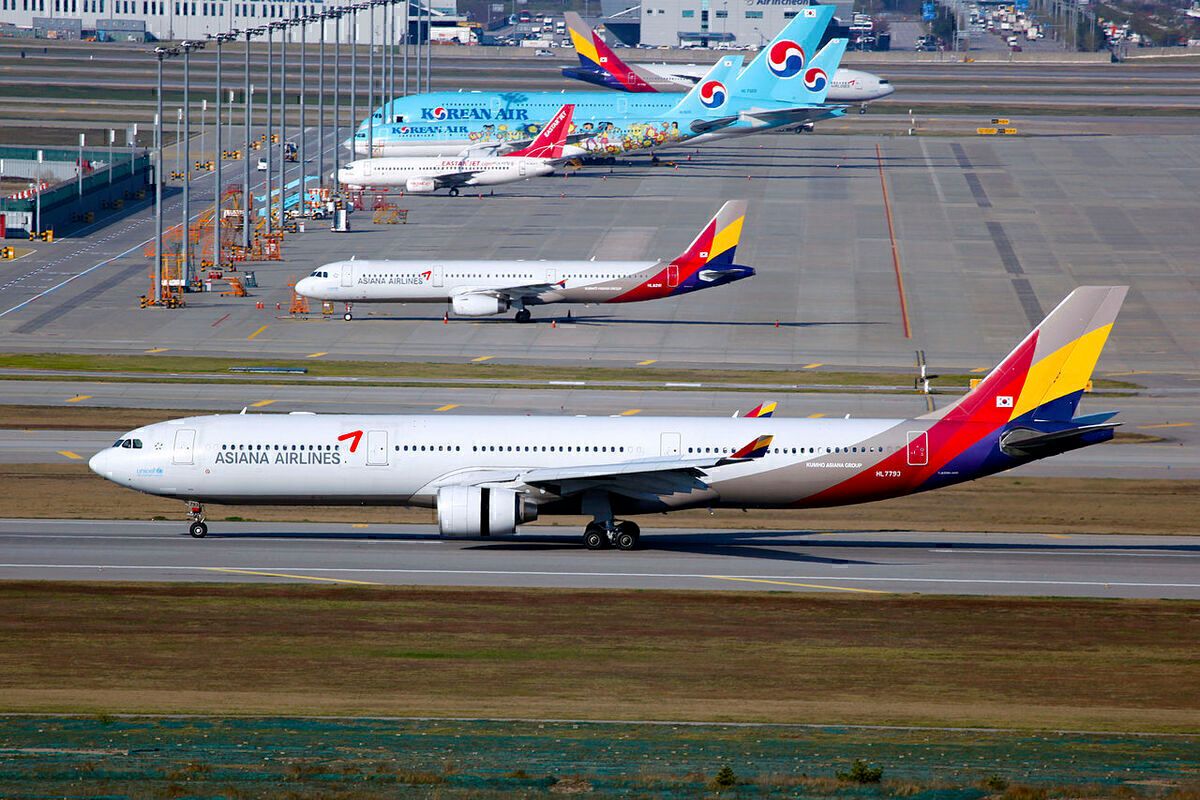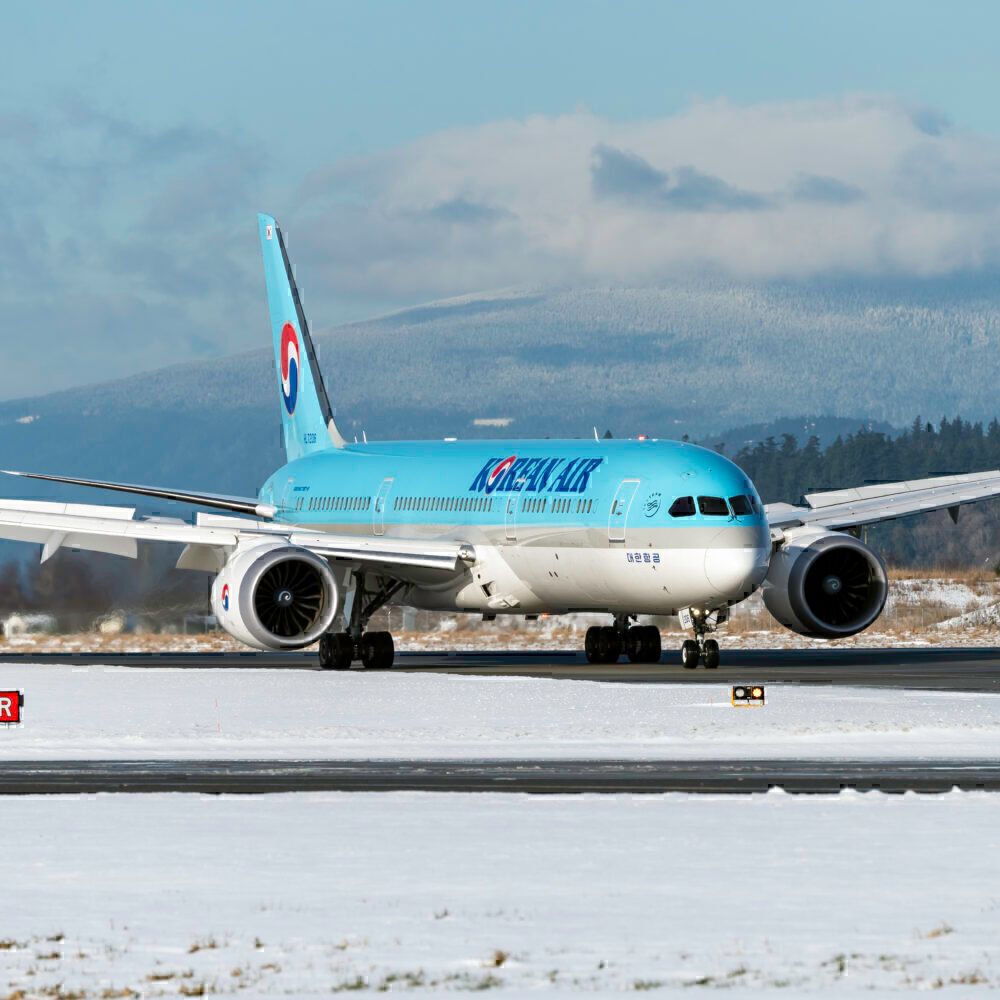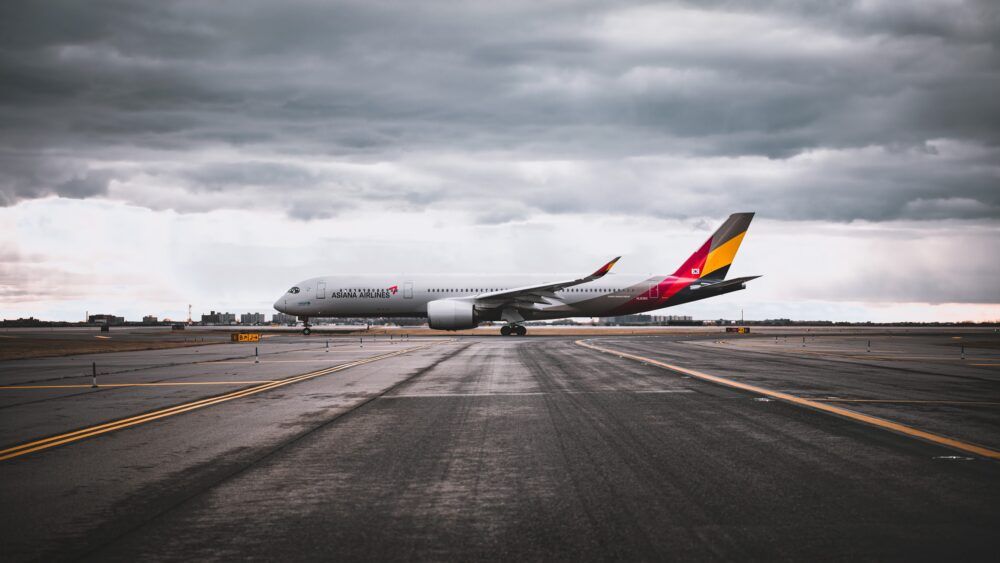Korean Air announced on Monday that it is set to spend 1.8 trillion won, or $1.62 billion, on acquiring rival carrier Asiana Airlines. The deal, if approved, will see the South Korean flag carrier become the largest shareholder of Asiana and the world's 15th largest airline by distance flown. This will likely come as some relief for Asiana, which has been looking for a buyer to relieve it from its growing debt.
"Korean Air decided to acquire Asiana Airlines after much consideration and deliberation in order to pursue its founding mission to contribute to the nation through transportation. Following its mission, the carrier will ensure job security for employees at both airlines as well as relevant industries and support the development of Korea’s aviation industry." -Korean Air via press release
Asiana's largest shareholder
According to the Yonhap News Agency, shares worth a total of 1.5 trillion won ($1.35 billion) will be purchased by Korean Air. Korean Air will also buy bonds to be floated by Asiana. This deal will see the buyer become a 30.77% stakeholder in Asiana.
The deal will be financed by state lender Korea Development Bank (KDB), which itself will invest 800 billion won ($722 million) in Korean Air's parent company, Hanjin KAL. 500 billion won will go to purchasing shares while the other 300 billion won will go to convertible bonds.
As part of the deal's formalities, Hanjin KAL is expected to submit a letter of intent to the KDB early this week.
Stay informed: Sign up for our daily aviation news digest.
It looks like other public investors are in support of the deal as Asiana's stock price rose an astounding 28.7% today. As for Korean Air, it's stock price also went up a fairly impressive 8.4%.
What will be the result of this acquisition?
Korean Air says that the main reason for acquiring Asiana Airlines is to stabilize the Korean aviation industry. Korean Air recognizes that its own financial status could also be endangered if the COVID-19 situation is prolonged. Therefore, it says that restructuring the domestic aviation market is inevitable and must be done to enhance competitiveness.
This is what Korean Air lists as the outcome of the acquisition:
- Enhanced competitiveness of the Korean aviation industry
- More streamlined route operations and lower costs
- More slots secured at Incheon International Airport through the consolidation of the airlines
- An increase in joint ventures with global airlines and greater transfer demand
- Growth of the domestic aviation industry
- Incheon International Airport’s competitiveness as a major hub in Asia will be strengthened
The airline says that customers will have a wider range of choices in routes and schedules, as well as more convenient transfer options, integrated mileage, and enhanced safety in all areas.
According to Reuters, the money will be spent on conducting integration efforts, including consolidation or closure of redundant operations. Korea Corporate Governance Improvement Fund (KCGI), Hanjin Kal's largest shareholder, has said any KDB investment would likely support current management. It's been reported that KCGI is in support of replacing family-appointed executives with outsiders.
If we assume that Asiana will indeed be absorbed by Korean Air, then the Star Alliance may lose Asiana as a member airline. Korean Air is currently a major member of the SkyTeam Alliance.
Less competition domestically, stronger competition internationally
Korean Air argues that having two full-service carriers for a country the size of South Korea is atypical. In its press release, it said the following,
"In general, countries with a population less than 100 million have a single full service carrier. However, Korea has two full service carriers, which gives it a competitive disadvantage compared to countries like Germany, France and Singapore with a single major airline. However, Korean Air’s acquisition and the expansion of its routes, fleet and capacity will give the airline the competitiveness to compete with global mega airlines."
Using 2019 IATA data, combining the two carriers would see the new airline become the 15th largest airline based on kilometers flown by paying passengers. Currently, Korean Air sits at 28th while Asiana is 42nd. Based on airline fleet size, the newly combined carrier would be the 10th largest in the world.
What do you think of this deal? Are you in favor of the two airlines combining? Let us know in the comments.



